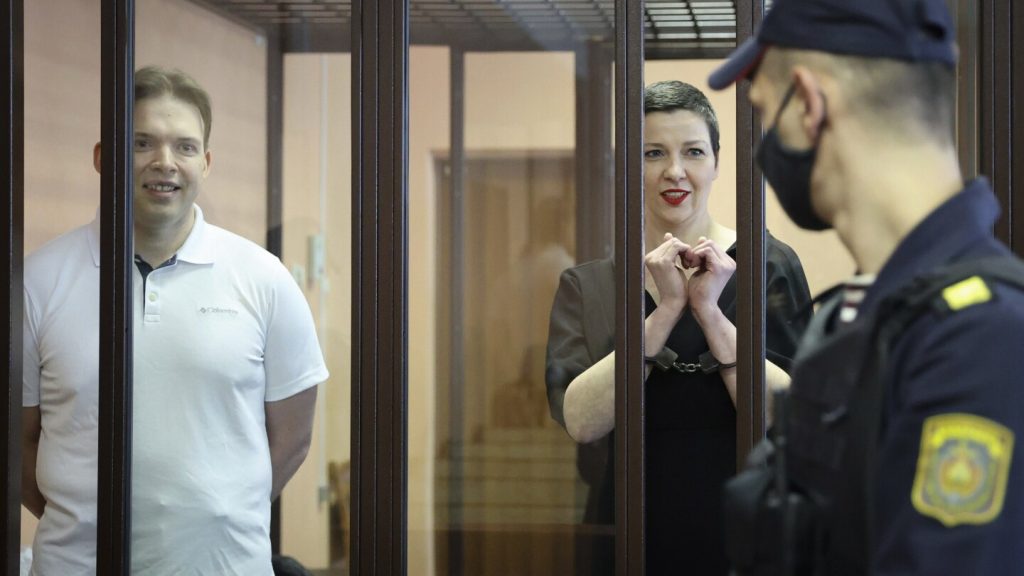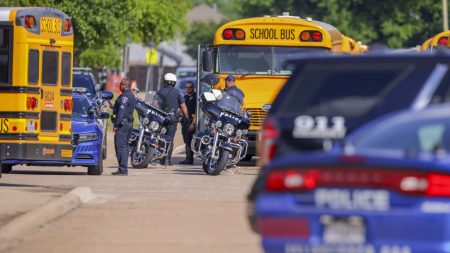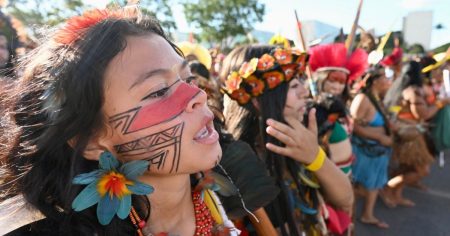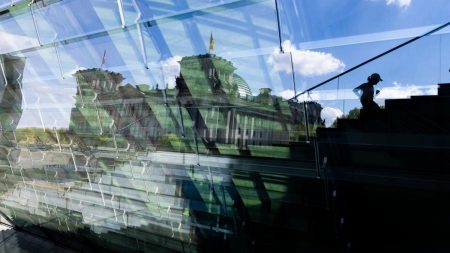Kolesnikova, a prominent Belarusian opposition figure, has been missing since her family last heard from her on her 42nd birthday, 434 days ago. She is currently serving an 11-year prison sentence for her involvement in organizing anti-government protests in Belarus in 2020. Her family is concerned about her deteriorating health and lack of communication, as the last letter they received from her was in February 2023. Kolesnikova has been held incommunicado for months, along with other imprisoned opposition figures, raising fears for their well-being.
The political atmosphere in Belarus was tense following the disputed 2020 election that saw President Alexander Lukashenko claim victory. Mass protests erupted in response to the election results, leading to widespread arrests and brutal crackdowns by the authorities. Kolesnikova, known for her iconic heart-shaped hand gesture at demonstrations, has been detained since September 2020 for tearing up her passport at the border when officials attempted to expel her. She underwent abdominal surgery in 2022 but was quickly returned to prison, where she has reportedly faced pressure and harassment from prison officials and other inmates.
Belarus’ leading human rights group, Viasna, has identified Kolesnikova as one of 93 political prisoners with severe medical issues who could be at risk of death. The organization has been monitoring the situation closely and has reported instances of pressure and isolation faced by Kolesnikova since March 2023. Her sister, Tatsiana Khomich, expressed concern for Kolesnikova’s well-being and highlighted the limited information available about her condition. The group has also listed 1,401 political prisoners in Belarus, including prominent figures like Ales Bialiatski, who won the 2022 Nobel Peace Prize, and Sviatlana Tsikhanouskaya, who is in exile in Lithuania.
Tsikhanouskaya, a key opposition leader, has called for solidarity with Kolesnikova on her birthday and criticized the Belarusian regime for its treatment of women activists. She questioned why Kolesnikova was spending her fourth birthday behind bars and emphasized the need for international support and awareness of the situation. The continued detention and lack of communication concerning Kolesnikova and other opposition figures have prompted calls for accountability from the international community and increased pressure on the Lukashenko regime to release political prisoners and respect human rights. The plight of individuals like Kolesnikova serves as a stark reminder of the ongoing crackdown on dissent in Belarus and the challenges faced by those fighting for democracy and freedom in the country.
















